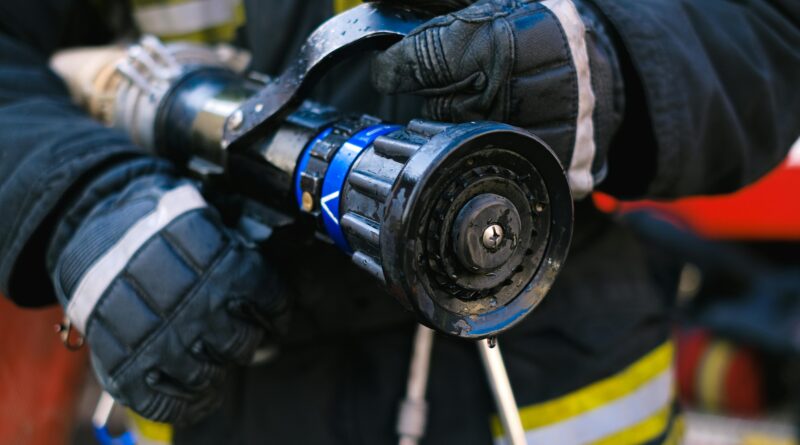The Impact of Fire Safety Training on Workplace Productivity in Abu Dhabi
In the bustling city of Abu Dhabi, where industries thrive and businesses flourish, ensuring workplace safety is paramount. Among the various safety measures, fire safety stands out as a critical aspect that demands attention. With the growing concern for workplace safety, companies in Abu Dhabi are increasingly investing in fire safety training programs. This article delves into the impact of fire safety training on workplace productivity in Abu Dhabi, highlighting the role of safety consultants, fire and safety companies, and various training programs such as first aid training, fire warden training, and fire fighting training.
Understanding Fire Safety Training
Fire safety training encompasses a range of practices and procedures designed to educate individuals on preventing, preparing for, and responding to fire emergencies. In Abu Dhabi, safety consultants play a pivotal role in assessing workplace hazards and designing tailored training programs to mitigate fire risks. These consultants collaborate closely with fire and safety companies to deliver comprehensive training that complies with local regulations and international standards.
The Role of Safety Consultants in Abu Dhabi
Safety consultants in Abu Dhabi possess expertise in identifying fire hazards specific to different industries and workplaces. Through thorough assessments and audits, they evaluate the existing fire safety measures and develop customized training plans to address any gaps. By leveraging their knowledge of local regulations and best practices, safety consultants ensure that businesses in Abu Dhabi adhere to stringent safety standards, thereby reducing the risk of fire incidents.
Collaboration with Fire and Safety Companies
Fire and safety companies in Abu Dhabi serve as invaluable partners in delivering effective training programs. These companies offer a wide range of services, including fire risk assessments, installation of fire safety equipment, and training sessions conducted by certified instructors. By partnering with reputable fire and safety companies, businesses in Abu Dhabi gain access to cutting-edge technologies and expertise, enhancing their preparedness for fire emergencies.
- First Aid Training
First aid training is an essential component of fire safety programs, equipping employees with the skills to provide immediate medical assistance in the event of injuries or emergencies. In Abu Dhabi, first aid training sessions cover basic life support techniques, wound management, and cardiopulmonary resuscitation (CPR), empowering individuals to respond effectively during critical situations.
- Fire Warden Training
Fire warden training focuses on preparing designated personnel to assume leadership roles during fire emergencies. Participants learn how to conduct evacuation drills, use fire extinguishing equipment, and communicate effectively with colleagues during evacuations. In Abu Dhabi, fire warden training programs emphasize proactive measures to prevent fires and ensure swift evacuation procedures.
- Fire Fighting Training
Fire fighting training is designed to equip individuals with the skills and knowledge required to combat fires safely and effectively. Participants learn how to operate various types of fire extinguishers, identify different classes of fires, and execute proper firefighting techniques. In Abu Dhabi, fire fighting training programs emphasize hands-on practical exercises to simulate real-life fire scenarios, enhancing participants’ confidence and readiness to respond to emergencies.
The Impact on Workplace Productivity
Investing in fire safety training yields tangible benefits for businesses in Abu Dhabi, including enhanced workplace productivity. By educating employees on fire prevention measures and emergency response protocols, companies minimize the likelihood of fire incidents, thereby avoiding disruptions to operations and potential loss of property. Moreover, trained employees demonstrate increased confidence and competence in handling fire emergencies, leading to faster and more efficient evacuation procedures.
Future Outlook and Recommendations
Looking ahead, the importance of fire safety training in Abu Dhabi is only expected to grow as businesses continue to expand and evolve. To further enhance workplace productivity and safety, it is imperative for companies to adopt a proactive approach towards fire safety. This includes:
- Regular Training Updates: Fire safety protocols and technologies evolve over time, necessitating regular updates to training programs. Companies should schedule periodic refresher courses and incorporate the latest industry standards into their training curricula.
- Integration of Technology: Embracing technological advancements such as fire alarm systems, smoke detectors, and fire suppression technologies can significantly enhance workplace safety. Companies should invest in state-of-the-art equipment and provide training on their proper usage and maintenance.
- Crisis Management Planning: In addition to fire safety training, companies should develop comprehensive crisis management plans that outline procedures for various emergency scenarios. This includes establishing communication channels, designating emergency response teams, and conducting regular drills to test preparedness.
- Employee Engagement: Engaging employees in the fire safety process fosters a culture of vigilance and accountability. Companies should encourage active participation in safety initiatives, provide avenues for feedback and suggestions, and recognize employees who demonstrate exemplary commitment to fire safety.
- Collaboration and Networking: Sharing best practices and lessons learned with industry peers and participating in collaborative forums can enrich fire safety training initiatives. Companies should explore opportunities for networking with other businesses, safety consultants, and fire and safety companies to stay abreast of emerging trends and innovations.
By embracing these recommendations and continuing to prioritize fire safety training, businesses in Abu Dhabi can not only mitigate the risk of fire incidents but also foster a safer, more productive work environment for their employees.
Conclusion
In Abu Dhabi’s dynamic business landscape, prioritizing fire safety training is not just a regulatory requirement but also a strategic investment in workplace productivity. Safety consultants, in collaboration with fire and safety companies, play a crucial role in delivering tailored training programs that address the specific needs of businesses across various industries. Through initiatives such as first aid training, fire warden training, and fire fighting training, companies empower their employees to mitigate fire risks and respond effectively to emergencies. By fostering a culture of safety and preparedness, Abu Dhabi businesses can safeguard their workforce, assets, and productivity against the threat of fire incidents.

